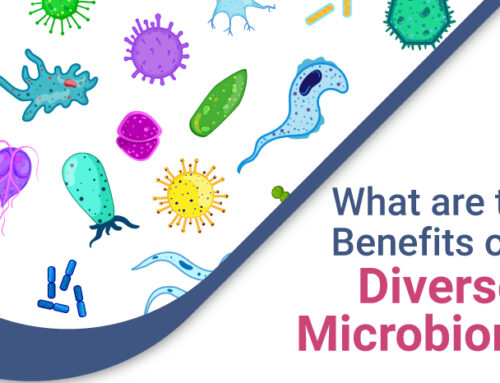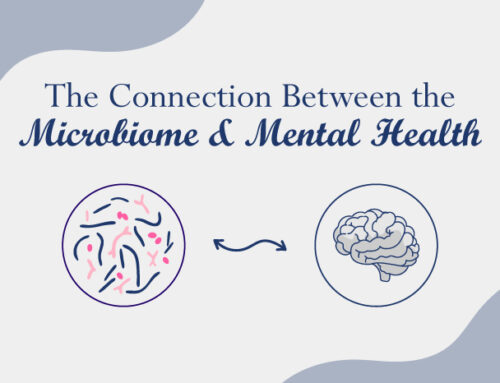Diving deep into the vast universe of the human body, one encounters a bustling community of microorganisms. Comprising bacteria, viruses, fungi, and protozoa, the human microbiome has become a focal point of contemporary medical research. A fine-tuned interaction and communication system exists between these microorganisms and the cells, tissues, and organs they inhabit. Recognizing this delicate balance is pivotal, especially when considering the broader implications for health and disease.
The Importance of Understanding its Connection to Diseases
It’s more than mere cohabitation; it’s a symbiotic relationship where environment, function, and disease are intertwined. Understanding the microbiome’s role in diseases can pave the way for revolutionary treatments and even prevention methodologies. Our body systems rely on this intricate interaction for optimal health.
What is the human microbiome?
The human microbiome is a vibrant community of microorganisms that reside in and on our bodies. These microbes are pivotal in several physiological functions, from digestion to immune response.
Composition: Bacteria, viruses, fungi, and other microorganisms
Delving into the design, one finds a superabundance of organisms – bacteria, fungi, viruses, protozoa, and archaea. These entities coexist, ensuring a diverse microbial environment, each bringing unique functions to the host.
How does the microbiome develop from birth?
From the moment of birth, we are introduced to a myriad of microorganisms. Initial colonization often stems from the mother, but as time progresses, factors like diet, environment, and medicines shape this microbial community.
Historical Perspective
Historically, the microbiome and health’s correlation were observed but not deeply understood. Ancient civilizations recognized the role of microbes in fermentation, for example, but the intricate links to health have only been elucidated in more recent studies.
Evolving understanding of the microbiota and disease
Over time, with the progression of research tools and methodologies, our knowledge of microbiota probiotics has undergone a paradigm shift. It’s evident that an imbalance in our microbial community, termed dysbiosis, can be a precursor to numerous diseases.
Cancer: A Brief Primer
At its core, cancer is the unchecked growth and division of cells in the body. These rogue cells evade the body’s usual regulatory mechanisms, leading to tumorigenesis.
Common types of cancer and their prevalence
Cancer manifests in various forms, from breast and lung to colon and skin cancers. Each type has its unique risk factors and etiology, with some being more prevalent due to genetic, environmental, or lifestyle factors.
The intricate balance of cell growth and cell death
The delicate balance between cellular growth and apoptosis (programmed cell death) ensures tissue homeostasis. Disruption of this equilibrium can steer cells down the path of carcinogenesis.
The Microbiome-Cancer Connection
Initial observational studies shed light on correlations between gut microbiota diversity and cancer risk. For instance, certain bacterial compositions were frequently present in cancer patients, suggesting a potential link.
Gut microbiota’s role in inflammation and cancer
Inflammation, driven by changes in the microbiome, can create an environment conducive to cancer cell growth. The role of gut microbiota in influencing inflammatory responses is becoming increasingly clear.
How do certain bacteria may promote or inhibit tumor growth?
Certain bacterial strains can fuel or hinder tumor progression through their metabolites or virulence factors. For instance, Fusobacterium may promote colon cancer, while other bacteria might exhibit protective effects.
Mechanisms of Microbial Influence
Bacterial toxins can directly damage DNA or promote inflammatory responses, both of which can elevate cancer risk. These toxins, in certain contexts, can act as carcinogens.
Chronic inflammation and its link to cancer
Persistent inflammation, often due to microbial imbalances, creates a milieu where cancer cells thrive. This connection between chronic inflammation and carcinogenesis underscores the importance of a balanced microbiome.
The immune system response and microbial interference
Microbes influence the immune system’s activity, potentially modulating its cancer-fighting capabilities. Dysbiosis can impair the immune response, allowing cancer cells to evade detection.
Specific Microbes and Associated Cancers
Helicobacter pylori, a well-known gastric pathogen, has been conclusively linked to stomach cancer. Its presence alters the gastric environment, inducing changes that can lead to malignancy.
Fusobacterium nucleatum and colorectal cancer
Fusobacterium nucleatum has gained attention due to its overabundance in colorectal cancer tissues. Studies suggest that it may play a role in tumor growth and progression.
Other notable bacteria and their linked cancers
Beyond the aforementioned, numerous bacteria have been associated with various cancers. The evidence, while compelling, necessitates further research for definitive links.
The Microbiome’s Impact on Cancer Therapy
Chemotherapy, a common cancer treatment, can be influenced by the gut microbiota. Certain bacteria can modulate the drug’s efficacy, potentially impacting patient survival rates.

Microbiota’s role in enhancing or inhibiting immunotherapy
Immunotherapy, which utilizes the body’s immune system to combat cancer, can be affected by the microbiome. Specific microbial compositions might either bolster or impede the treatment’s success.
Tailoring cancer treatments based on microbiome composition
A future where cancer therapies are tailored based on an individual’s microbiome isn’t far-fetched. Personalized medicine approaches, considering microbial data, can optimize treatment efficacy.
Probiotics and Cancer Prevention
Probiotics, live beneficial bacteria, have garnered interest for their potential health benefits. Their role in restoring or maintaining microbial balance positions them as allies in disease prevention.
Studies showcasing potential cancer-preventing properties
Emerging studies hint at probiotics’ role in cancer prevention. Modulating the microbiome and reinforcing the gut barrier could mitigate cancer risk factors.
Integrating probiotics into cancer-preventative diets
Incorporating probiotics into daily diets through supplements or fermented foods might offer a protective shield against certain cancers. Their role in maintaining microbial harmony strengthens the body’s innate defenses.
The Gut-Brain Connection in Cancer Development
The gut-brain axis, a bidirectional communication channel, connects gastrointestinal functions with neurological activity. This axis has implications for mental health, stress, and, potentially, cancer risk.
Mental health, stress, and implications for cancer risk
Chronic stress and mental health issues can alter the gut microbiome, which might influence cancer risk. The gut-brain connection in this context demands further exploration.
Microbial influence on neurochemical balance
Certain gut microbes can produce neurochemicals, influencing brain functions. This microbial activity might indirectly affect behaviors, stress levels, and cancer risk.
Dietary Influences on the Microbiome and Cancer Risk
Diet plays a paramount role in determining our microbial composition. Every dietary component can sway the balance of gut inhabitants, from fibers and proteins to sugars and fats.
Specific foods that promote a healthy microbiome
Fermented foods, rich in probiotics and fiber-rich vegetables and grains, bolster a healthy microbiota. Conversely, processed foods laden with artificial sweeteners can disrupt this balance.
The role of fiber, fermented foods, and artificial sweeteners
While fibers and fermented foods nurture beneficial microbes, artificial sweeteners might promote dysbiosis. Recognizing these dietary influences is essential for microbial health and, by extension, cancer prevention.
The Future of Microbiome and Cancer Research
As technology advances, so do our tools for microbiome analysis. Next-generation sequencing, for instance, provides detailed insights into microbial diversity and function.
Potential for personalized medicine approaches
Envisioning a future where treatments are tailored based on microbial compositions isn’t just a dream. The intertwining of microbiome data with personalized medicine heralds a new era in cancer therapy.
The promise of microbial therapies in cancer treatment
Harnessing microbes for cancer treatment offers tantalizing prospects. Be it through probiotics, fecal transplants, or targeted microbial interventions, the potential is immense.
Conclusion
The labyrinthine relationship between our microbiome and cancer is intricate yet profoundly significant. As we stand on the precipice of medical revolutions, it’s evident that understanding this relationship will be key. The potential for leveraging the microbiome in cancer prevention and treatment is vast. Hence, promoting microbial health becomes a priority and a clarion call for holistic well-being.
Can dietary changes impact the microbiome?
Yes, diet plays a significant role in shaping the microbiome. Foods like fiber-rich vegetables and fermented products can promote a healthy microbial balance.
What role do probiotics play in cancer prevention?
Probiotics, being beneficial bacteria, may restore or maintain microbial balance, potentially reducing certain cancer risk factors.
Can the microbiome be altered to prevent cancer?
Ongoing research suggests that probiotics and dietary interventions can positively influence the microbiome, potentially reducing cancer risk. However, individual responses can vary.




